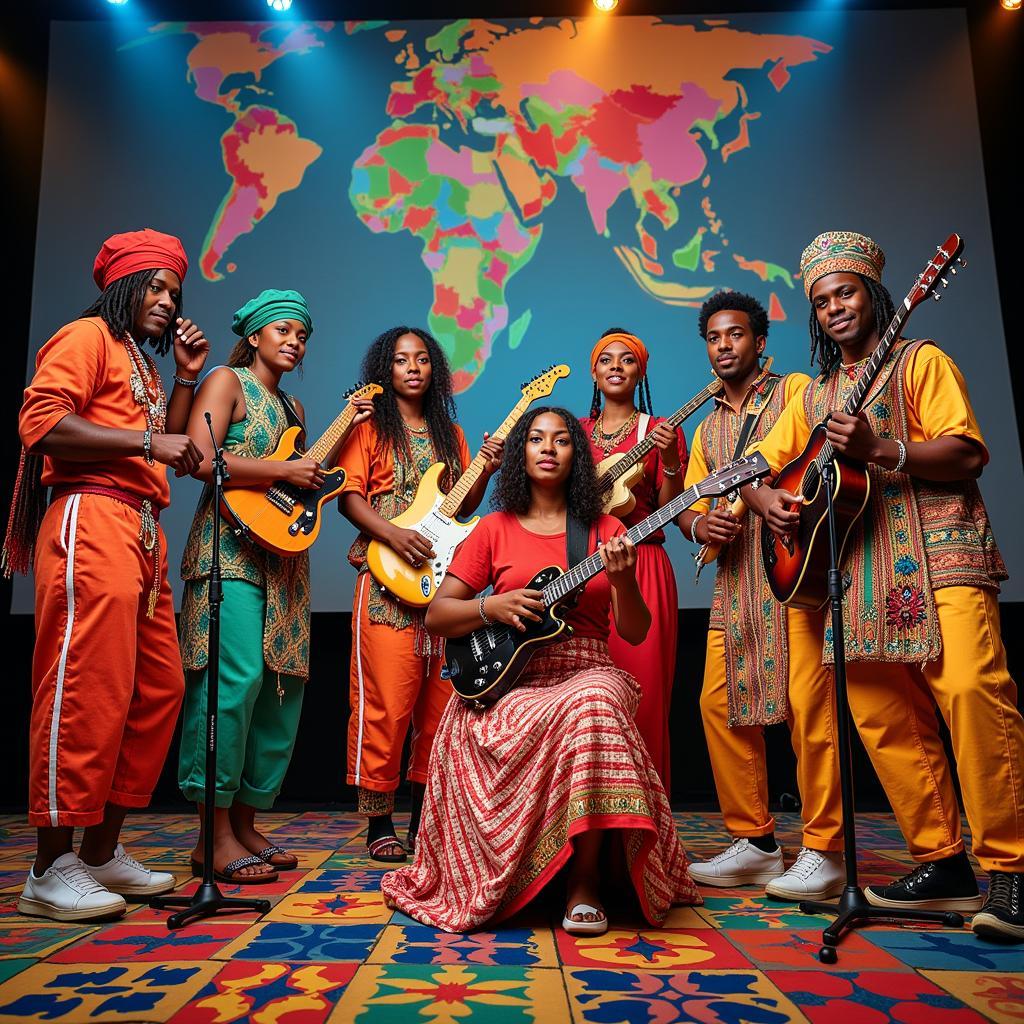From the catchy melodies of pop anthems to the raw energy of rock concerts, popular music is more than just entertainment. It’s a powerful force that shapes our society, influences our values, and connects us across cultural divides. Whether we realize it or not, popular music plays a significant role in how we understand ourselves and the world around us.
 Concert Crowd
Concert Crowd
The Soundtrack of Our Lives: How Popular Music Reflects Social Trends
Popular music often acts as a mirror, reflecting the social, political, and cultural landscape of the time. From the protest songs of the 1960s that gave voice to the civil rights movement to the hip-hop anthems of the 1990s that addressed social injustices, music has always been a powerful tool for social commentary and change. By reflecting the hopes, fears, and anxieties of a generation, popular music allows us to understand the historical and cultural context of a particular era.
For example, the emergence of grunge music in the early 1990s, with bands like Nirvana and Pearl Jam, reflected the disillusionment and angst of a generation grappling with economic uncertainty and social alienation. The raw, emotional lyrics and the stripped-down musical style resonated with listeners who felt unheard and misunderstood. This example illustrates how popular music can capture the zeitgeist of a particular time, giving voice to collective emotions and experiences.
Bridging Cultures, Building Communities: Music as a Universal Language
One of the most remarkable aspects of popular music is its ability to transcend geographical boundaries and cultural differences. Music, often referred to as the universal language, has the power to connect people from all walks of life, fostering a sense of shared humanity and understanding.
 Global Music Festival
Global Music Festival
The rise of global music festivals and the ease with which music can be shared online have further amplified this phenomenon. Today, it’s easier than ever to discover and connect with music from different cultures, broadening our horizons and challenging our preconceived notions. This cross-cultural exchange fostered by popular music is essential for promoting tolerance, empathy, and respect among diverse communities.
More Than Just a Song: The Impact of Popular Music on Identity and Belonging
Music plays a crucial role in shaping individual and collective identities. From the subcultures that emerge around specific genres to the anthems that unite fans at sporting events, music provides a sense of belonging and shared experience.
For many, music becomes an integral part of their identity, influencing their fashion choices, their language, and even their values. This is particularly true for young people who are still in the process of forming their identities. Popular music can provide a sense of validation, a feeling of being understood and accepted for who they are.
black label society ain't no sunshine
The Evolution of Sound: How Technology is Transforming the Music Industry
The way we consume and experience music is constantly evolving. The advent of the internet, digital streaming platforms, and social media has had a profound impact on the music industry, creating new opportunities for artists to connect with their fans and for fans to discover new music.
While these technological advancements have democratized music production and distribution, they have also presented new challenges. Issues like copyright infringement, piracy, and the decline in album sales have forced the industry to adapt and innovate in order to survive.
The Future of Sound: How Popular Music Will Continue to Shape Our World
As technology continues to evolve at an unprecedented pace, it’s exciting to imagine how popular music will continue to shape our society in the years to come. From virtual concerts and immersive music experiences to the use of artificial intelligence in music creation, the possibilities seem endless.
One thing is certain: popular music will continue to be a powerful force in our lives, reflecting our changing world and connecting us in ways that we are only beginning to understand. By embracing the power of music to foster dialogue, empathy, and understanding, we can harness its potential to create a more harmonious and peaceful world.
FAQs: Popular Music and Society
How does popular music influence fashion?
Popular music often sets trends in fashion, with artists influencing clothing styles, hairstyles, and accessories. Think about the impact of hip-hop culture on fashion, or how rock and punk music inspired generations of fans to adopt distinct styles.
Can music really create social change?
Throughout history, music has played a vital role in social and political movements. From protest songs to charity concerts, music has the power to raise awareness, inspire action, and unite people for a common cause.
How has technology changed the way we listen to music?
The rise of digital streaming services has revolutionized music consumption, giving us instant access to a vast library of songs at our fingertips. This has also led to the decline of physical albums and the rise of playlists and curated listening experiences.
What is the role of music festivals in society?
Music festivals bring people together from all walks of life to celebrate music, create shared experiences, and foster a sense of community. They often serve as platforms for cultural exchange and artistic expression.
How can I support musicians and the music industry?
You can support musicians by attending concerts, buying merchandise, streaming music legally, and engaging with their content online. By supporting artists directly, you help them continue creating the music we love.
audio engineering society jobs
Need Help?
For any assistance or further information, please contact us at:
Phone Number: 02043854663
Email: [email protected]
Address: Khu 34, Bắc Giang, 260000, Vietnam
Our dedicated customer support team is available 24/7 to assist you.